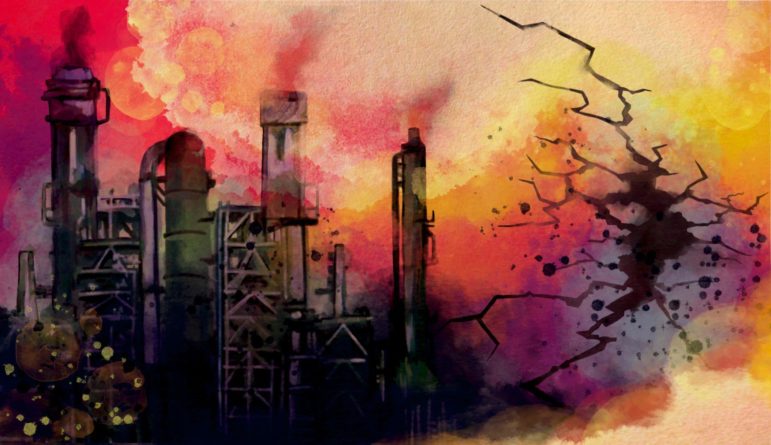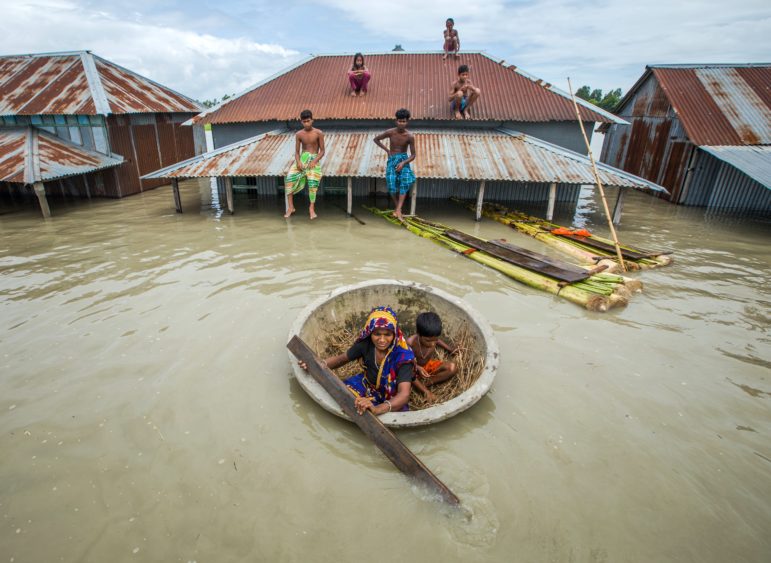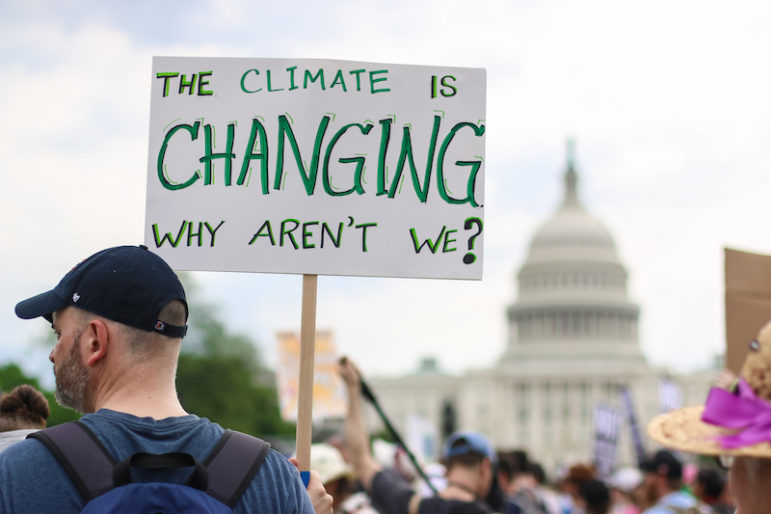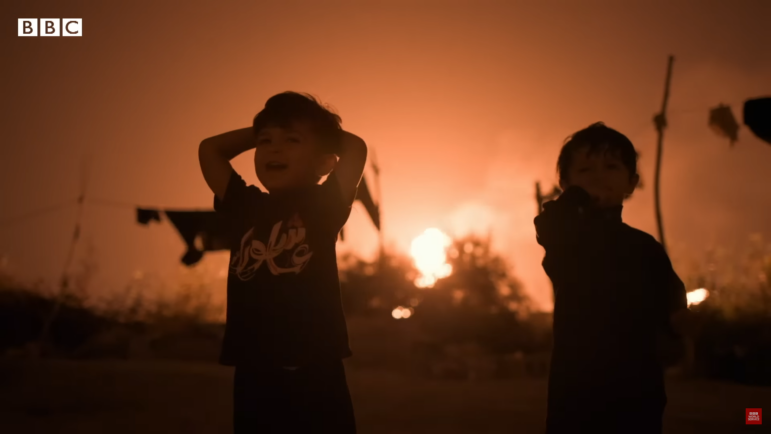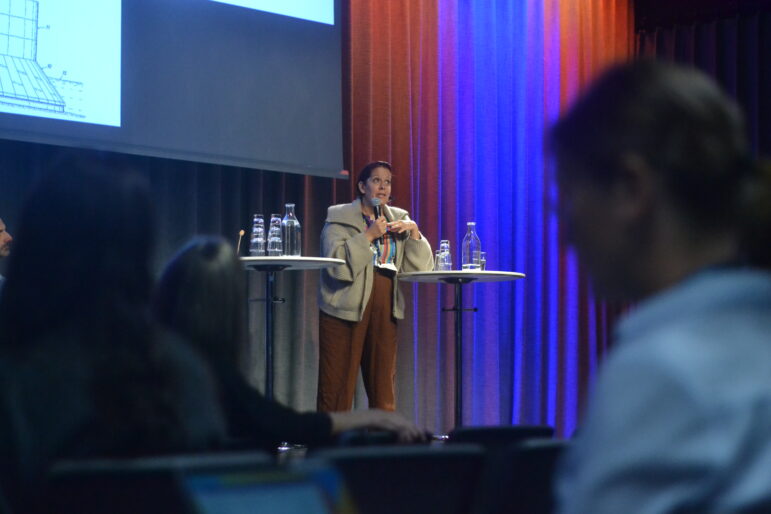

Amy Westervelt no painel sobre responsabilidade climática na GIJC. Imagem: Ellen Lindqvist para GIJN
Climate Change: Holding Government and Industry Accountable
Read this article in
As climate change impacts communities across the globe in the form of wildfires, record heat, deadly flooding, and devastating droughts, there is a growing urgency in investigating the causes and impacts.
Four environmental journalists — including the Guardian’s Damian Carrington and the independent investigative reporter Amy Westervelt — advised attendees at the 13th Global Investigative Journalism Conference (#GIJC23) on how they can hold the public and private sectors accountable.
Deborah Nelson, a Pulitzer-prize winning journalist and professor at the Howard Center for Investigative Journalism at the University of Maryland, moderated the panel.
Investigating the Oil Industry
The paper trail and resources available to investigate oil companies can vary, said Carrington, the environment editor of the Guardian, depending on if they are government-owned operations or international corporations.
Reporting on national oil companies is more difficult, he added, because their operations are often extremely opaque. “Most of them don’t have shareholders therefore, they don’t publish much information,” he explained. “And in those countries, it’s extremely hard to do reporting. They’re a pretty blank book.”
For publicly-traded international oil companies, however, there are more accessible ways to gather information, from company financial filings to disclosure from lawsuits.
Another tactic that is becoming increasingly important for reporting on the impacts of the fossil fuel industry – whether private or state-owned – is using data from satellite images. For example, satellites have become an invaluable tool in investigating methane emissions by fossil fuel companies, whether accidental or intentional. “In a way, it’s an eye in the sky and gas companies can’t hide from them,” Carrington said.
Whistleblowers can be an option for reporting on the fossil fuel industry, too, but it’s often hard to find them. “There’s never really been a high profile whistleblower from the oil and gas industry,” Carrington noted. “They’re extremely well paid. So why upset the apple cart?”
On a beat where leakers with deep industry ties may be hard to come by, reporters can find sources in an unexpected place: public relations firms hired by oil and gas companies. Sometimes, they’re eager to talk, said Amy Westervelt, who made the investigative podcast, Drilled.
“PR people, in particular, are mostly creatives and frustrated journalists, so they want you to like them. Whenever I talk to PR whistleblowers in particular, they want absolution,” she said.
Paper Trail
Westervelt also emphasized the importance of primary documents, and encouraged reporters to think creatively and look for unconventional sources, like the calendars of politicians who might be meeting with oil executives, corporate applications for patents, and company documents stored in university archives.
Archives, in particular, are “amazing treasure troves of how companies have been thinking about this stuff for a long time,” she said.
Likewise, patent applications can provide key insights into the fossil fuel industry’s plans — and what they know but may not want to publicly admit. In the 1980s and 90s, for instance, various oil companies applied for patents for the necessary equipment to drill for oil in a future, melting Arctic, she said.
Some of the panel pointed out that climate journalists don’t just serve as industry watchdogs – they also hold the public sector accountable, ensuring that governments are safeguarding the environment, and allocating climate action funds equitably to those affected by its impact.
But all the experts stressed the importance of this beat; and said that the time to hold the industry to account is now.
“This is probably the most lucrative industry in the history of humanity. And they’ve kind of run the world for the last century,” Carrington pointed out. But, he added, it’s not going to be easy. “They’re not going to go away without a fight.”

